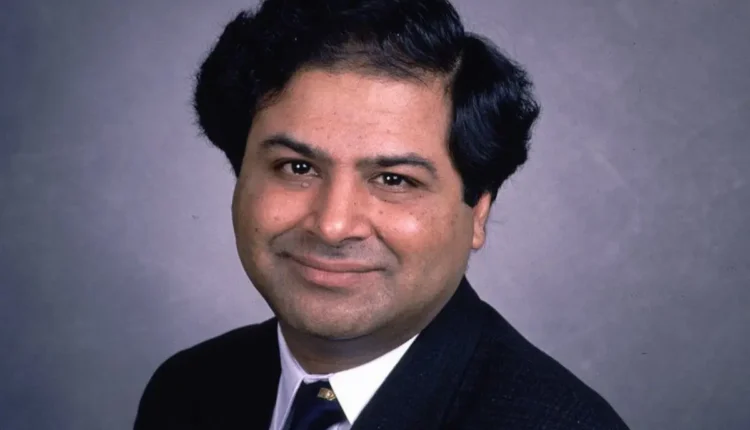Ashok Kumar (28 May 1956 – 15 March 2010) was an extraordinary figure in British politics, whose life and career serve as a testament to dedication, intellect, and the pursuit of progress. As a Member of Parliament (MP) for Middlesbrough South and East Cleveland from 1997 until his sudden death in 2010, Kumar’s contributions left an indelible mark on his community and the fields of science and technology.
Early Life and Academic Pursuits of Ashok Kumar
Born in Haridwar, Uttar Pradesh, India, Kumar’s early life was marked by significant transitions. His parents, Jagat Ram Saini and Santosh Kumari, moved the family to Derby, England, when Kumar was twelve.
This move set the stage for his future achievements. Despite the challenges of adapting to a new country, Kumar excelled academically. He attended Rykneld Secondary Modern School and then Wilmorton College for his O-Levels. His academic journey continued at Derby & District College of Art & Technology, where he completed his A-Levels.
Kumar’s passion for science led him to Aston University in Birmingham, where he earned a BSc in Chemical Engineering in 1978. He furthered his studies with an MSc in Process Analysis and Control Theory in 1980 and a PhD in Fluid Mechanics in 1982.
His thesis, “Velocity Distributions in a Plate Heat Exchanger,” showcased his expertise in chemical engineering. Kumar was a Fellow of the Institution of Chemical Engineers, a Chartered Engineer, and a Member of the Energy Institute, reflecting his deep commitment to his field.
Professional Achievements
Before entering politics, Kumar made significant contributions as a Research Fellow at Imperial College London from 1982 to 1985. He then worked as a research scientist for British Steel Corporation in Middlesbrough from 1985 to 1997. His work in these roles demonstrated his dedication to scientific advancement and industrial innovation.
Political Career
Kumar’s political journey began at the local level, serving as a councillor for Middlesbrough Borough Council from 1987 to 1997. His dedication and effectiveness as a local leader paved the way for his entry into national politics.
Ashok Kumar first became an MP in the 1991 Langbaurgh by-election, though he lost the seat in the 1992 general election. Undeterred, he contested the newly formed Middlesbrough South and East Cleveland constituency in 1997, defeating his previous opponent, Michael Bates, and serving until his death in 2010.
As an MP, Ashok Kumar was known for his deep understanding of scientific and industrial issues. He was a Member of the Parliamentary and Scientific Committee, Vice-Chair of the Parliamentary Group for Energy Studies, Chair of the Parliamentary Office of Science and Technology (POST), and Chair of the Northern Group of Labour MPs. His leadership in these roles underscored his commitment to integrating scientific insight into policymaking.
Legacy and Tributes
In honor of Kumar’s contributions, the Institution of Chemical Engineers (IChemE) and the Northeast of England Process Industry Cluster (NEPIC) established the Ashok Kumar Fellowship at POST in June 2010.
This annual fellowship allows a postgraduate engineering student to spend three months working at POST, continuing Kumar’s legacy of promoting science and technology in public policy. By 2017, the sixth Ashok Kumar Fellow, Erin Johnson from Imperial College London, had been appointed, highlighting the enduring impact of Kumar’s work.
Kumar’s advocacy for industrial engagement and economic clusters was particularly notable. He regularly chaired the NEPIC MP/Industry meetings, driving growth and innovation in the sector. Tributes following his death attested to the high regard in which he was held by colleagues and the industry alike.
Personal Life and Values
Ashok Kumar was a man of diverse interests and commitments. A Distinguished Supporter of the British Humanist Association, he identified as a lifelong “liberal humanist.” Of Hindu and Sikh descent, Kumar embraced a broad and inclusive worldview. He received an honorary degree from Aston University in July 1997, acknowledging his contributions to science and public service.
Despite his many accomplishments, Ashok Kumar’s personal life was marked by simplicity. He never married or had children, and he lived in Marton, Middlesbrough, until his death. On 15 March 2010, Kumar was found dead in his constituency home, having passed away from natural causes. His sudden death was a significant loss to his community and the broader fields of science and politics.
Also Read:Dame Indira Patel: A Life Dedicated to Empowering Women

